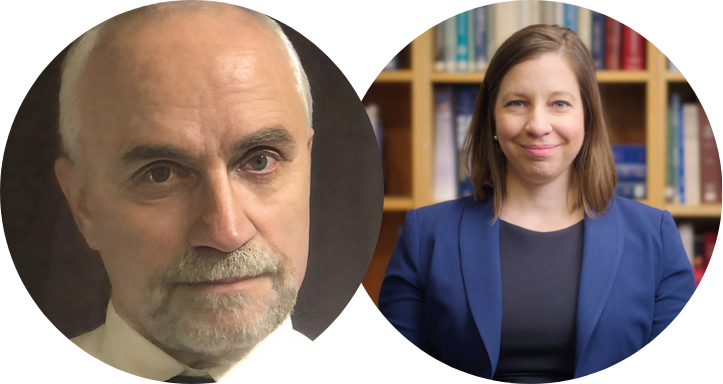Teaching Decision-Making and Reasoning in Forensic Supervision
Presented by: Terry Kukor, PhD, ABPP and Sarah Miller, PhD, ABPP

This on-demand professional training program on Teaching Decision-Making and Reasoning in Forensic Supervision is presented by Sarah Miller, PhD, ABPP, and Terry Kukor, PhD, ABPP.
How do we learn to make decisions and reason about data in the context of forensic mental health assessment (FMHA)? In this program, we address the core question about how to teach someone to think critically in the context of FMHA. Critical thinking skills are about the ability to receive, collect, and analyze information effectively, which we apply to both decision-making and reasoning.
Decision-making refers to the range of decisions in conducting FMHA, ranging from in-the-moment determinations about what to write down in an interview to larger decisions about what collateral data to request. Reasoning refers to determinations we make about what the data means in terms of the legal issue or capacity being addressed.
This program is intended for two groups: 1) those who either receive or provide supervision of FMHA services, and 2) those who wish to sharpen their skills related to tactical decision-making and reasoning in FHMA.
Looking for Impact? This program reassures employers of participants that they have received supervision-specific training in decision-making and reasoning.
Program Value: For those forensic professionals either providing or receiving supervision, this program provides unique content about tactical decision-making and reasoning in FMHA that, to our knowledge, is not addressed elsewhere.
Upon completion of this training, participants will be able to:
Key topics covered in this training include:
Teaching decision-making about data acquisition
-Collateral information: what to request, how to review it
-Clinical interviewing: ensuring understanding of notification of purpose, leading question, expressed empathy, making decisions about what to write in our notes
-Mental Status: standardized or contextual?
-FAI/Psychological testing: how and when to decide if useful for a specific case
-Report writing: deciding what data from our notes, collateral, and testing are used in the report
Teaching reasoning
-What is reasoning?
-The component parts of reasoning
-Common errors associated with reasoning
-Connecting evidence to inference in opinion-formation
-Detecting and mitigating bias
-How to maximize objectivity
-Key principles of critical thinking for report-writing
Palo Alto University, Continuing & Professional Studies (CONCEPT) is approved by, recognized by, or maintains sponsorship provider status with the following boards and agencies. We maintain responsibility for all content in our CE/CPD programs. For more information, visit here.
American Psychological Association (APA): Approved sponsor of continuing education for psychologists.
Association of Social Work Boards (ASWB): Approved continuing education provider (ACE program, Provider #1480), 11/22/2023–11/22/2026.
Canadian Psychological Association (CPA): Approved to sponsor continuing education for psychologists.
National Board for Certified Counselors (NBCC): Approved Continuing Education Provider (ACEP No. 7190).
Palo Alto University, Continuing and Professional Studies (CONCEPT) is approved by the American Psychological Association to sponsor continuing education for psychologists. Palo Alto University, Continuing and Professional Studies (CONCEPT) maintains responsibility for this program and its content. Palo Alto University, Continuing and Professional Studies (CONCEPT), is approved by the Canadian Psychological Association to offer continuing education for psychologists. Palo Alto University, Continuing and Professional Studies (CONCEPT), SW CPE is recognized by the New York State Education Department’s State Board for Social Work as an approved provider of continuing education for licensed social workers #SW-0356 and the New York State Education Department’s State Board for Mental Health Practitioners as an approved provider of continuing education for licensed mental health counselors. #MHC-0073. Palo Alto University, Continuing and Professional Studies (CONCEPT) has been approved by NBCC as an Approved Continuing Education Provider, ACEP No. 6811. Programs that do not qualify for NBCC credit are clearly identified. CONCEPT Professional Training, #1480, is approved to offer social work continuing education by the Association of Social Work Boards (ASWB) Approved Continuing Education (ACE) program. Organizations, not individual courses, are approved as ACE providers. State and provincial regulatory boards have the final authority to determine whether an individual course may be accepted for continuing education credit. CONCEPT Professional Training maintains responsibility for this course. ACE provider approval period: 11/22/23-11/22/26. Social workers completing this course receive (clinical or social work ethics) continuing education credits.